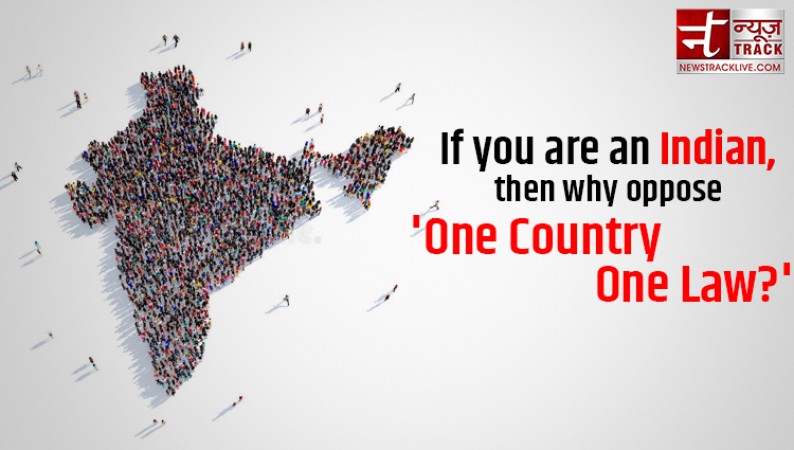
New Delhi: These days, the discussion of the Uniform Civil Code is going on across the country, preparations have also started on it in Uttarakhand and BJP-ruled states like Gujarat and Madhya Pradesh. In simple words, the Uniform Civil Code (UCC) is a law that applies equally to every community in the country, irrespective of religion, caste, or faith, the same law will apply to all Indians.
During the British period, the British had applied criminal and revenue-related laws to all Indians through the Indian Penal Code (IPC) 1860 and the Indian Evidence Act 1872, the Indian Contract Act 1872, the Special Relief Act 1877, etc., but left the issues related to marriage, divorce, succession, property, etc. to all religious groups on the basis of their beliefs. Out of these civil laws, personal laws with Hindus were abolished by the country's first PM Pandit Jawaharlal Nehru, but Muslims were excluded from it. The Hindu Marriage Act 1955, Hindu Succession Act 1956, Hindu Minor and Guardian Act 1956, and Hindu Adoption and Maintenance Act 1956 were enacted through the Hindu Code Bill, repealing the laws issued under the religious practices of Hindus.
After Nehru, Then Prime Minister Indira Gandhi created the Muslim Personal Law Board for Muslims (AIMPLB), in which Muslims were allowed to make laws on the basis of their religion. This led to two laws in the country, one applicable to all Indians, except Muslims. At the same time, personal law for Muslims used to take decisions according to their own, which was different from the law of the country. Since then, there has been a dispute from time to time about AIMPLB. This led to the courts citing the Quran and Islamic customs, during hearings in the case of Muslim accused or prosecutors. However, it is also interesting that religious laws are invoked during the trial, but the punishment is pronounced according to Indian law. For example, if a Muslim steals, then according to Islamic Sharia law, his hands are cut off, but in Indian law, the punishment for theft is 3 years in jail under IPC Sections 378 and 379. These are criminal laws, which are applicable to everyone, but issues like marriage, divorce, succession, and division of property, come under civil law, in which Muslims have privileges.
If there is a demand to make these laws equal for all Indians, then Muslims oppose it. Muslims say that their law is based on the Quran and Hadith, so they will accept this and oppose any amendment to it. In these laws, the concession of four nikahs by Muslims and different forms of divorce is the biggest reason for the dispute. Therefore, the Muslim Personal Law Board has also been openly opposing the Uniform Civil Code (UCC). It is also worth noting here that, when the Constitution of India also talks about equality among all citizens and many Muslim leaders are also often seen advocating equality, but still why do they not accept equality? Why are citizens in one country decided according to two different laws? Also, when the country is secular, why special laws for the people of one community?
32 officers transferred here simultaneously
Big blow to these banks' customers, must read this news
Why should anyone marry more than one? CM Shivraj announces UCC